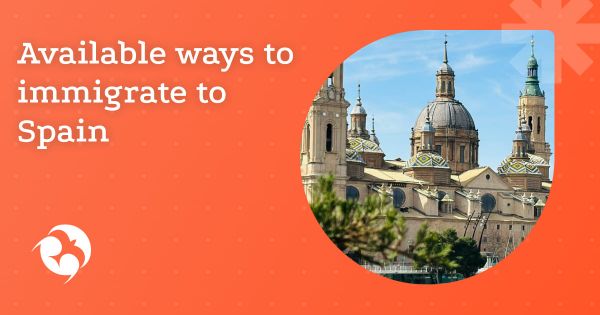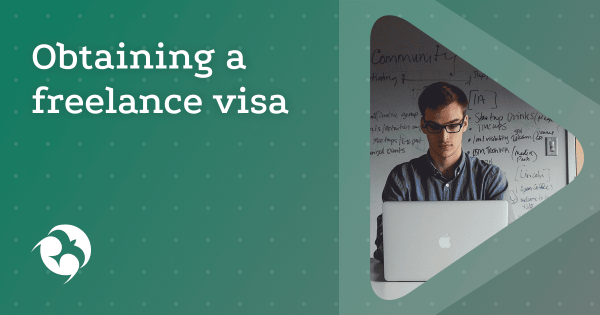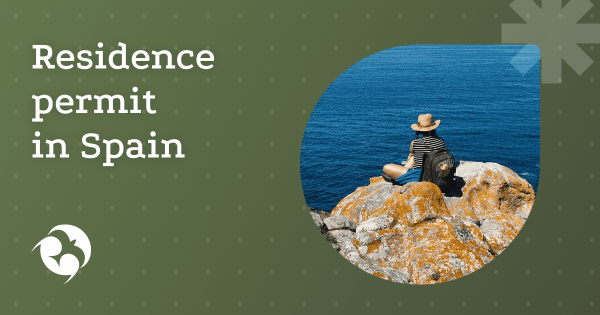Spain consistently ranks among the top countries for immigration due to the combination of high quality of life, warm climate and relatively affordable prices. According to data for 2024, more than 7 million immigrants (more than 15% of the population) live in the country. The high percentage of foreign citizens is not accidental. The Kingdom offers various ways of legalization, suitable for different categories of migrants: from investors to students and pensioners.
The prospects in Spain are interesting – from a comfortable life to the possibility of obtaining a passport of an EU citizen in 10 years. Moreover, the path to legalization can be chosen based on your own resources and life goals. However, when deciding to move to Spain, it is worthwhile to understand in advance the cost of living and the process of adaptation. The procedure for obtaining a Spanish residence permit was discussed in more detail earlier.
The benefits of living in Spain:
- Visa-free travel in Europe;
- The prospect of obtaining EU citizenship after 10 years of residence with a residence permit and permanent residence;
- Access to European banks;
- European education;
- Free medicine;
- Mild Mediterranean climate;
- High level of security;
- Friendly local population;
- Affordable prices for groceries, education, medicine, and real estate.

- We will answer all your questions
- We will help you choose the best option
- We will guide you through every step or do everything for you
Residence permit for financially independent individuals
The Residencia Temporary no Lucrativa program allows wealthy foreigners to legally live in the country without the right to work on its territory. The primary residence permit is issued for 12 months, and the subsequent extension is for 24 months. After 5 years, the resident has the right to apply for permanent residence. In 2024, more than 12% of the total number of immigrants used this method of legalization.
The main requirement is to confirm a passive income of € 28,800 per year (400% of the IPREM, the Spanish equivalent of the minimum wage). Each family member adds 7,200€ (100% IPREM) to the required amount. The sources may be rents for real estate abroad, dividends from stocks, pension payments, and interest on deposits.
The main requirement for the applicant is to confirm the legality of income. You will need to provide bank statements for the last 12 months, tax returns, and a lease agreement. Additional conditions include the availability of health insurance (coverage starting from 30,000€), no criminal record, and the availability of housing (rent or property).
The process of obtaining
- Registration of the application at the Spanish Consulate with the provision of documents translated into Spanish and certified by an apostille.
- Obtaining a D visa (right of entry to request a residence permit). The review takes up to 60 days.
- Registration at the place of residence in the municipality (within 30 days after arrival).
- Submitting a request for a resident’s card at Oficina de Extranjería. The issue takes 1-3 months.
The program is suitable for pensioners, rentiers and digital nomads whose income is generated outside Spain. According to the country’s Interior Ministry, in 2024, more than 2,000 Russians received a permit on this basis (18% more than a year earlier).
Table of registration costs
| Name of the expense | Cost | Note |
| Confirmation of financial independence (main applicant) | from € 28,800 per year | The equivalent of 2,400€ per month (400% IPREM), must be in the account when applying |
| Additional funds for each family member | from 7,200€ per year | The equivalent of 600€ per month (100% IPREM) for each additional applicant |
| National visa D | 80€ | Required to enter Spain before obtaining a residence permit |
| State fee for applying for a residence permit | about 100€ | Per person |
| Medical insurance | from 40-50€ per month | Standard price, depends on coverage and health |
| Translation and legalization of documents | varies | Depending on the number of documents and the country of origin |
| Extension of residence permit | about 100€ | State fee for extension of residence permit after 1 year |
| Health insurance extension | from 480-600 € per year | A prerequisite for maintaining a residence permit |
| Rental housing | from 900 € per month | The cost varies depending on the region |
Student residence permit
Moving to Spain for study (Residencia para Estudiantes) is one of the most popular ways to legalize for foreigners under 35 years of age. In 2024, 41,2 thousand people entered on this basis, 18% of them Russian citizens. The program allows you to combine studies with part-time work and serves as a basis for further study in the country on a permanent basis.
According to the terms of the program, it is necessary to confirm the training in certified educational institutions. These can be universities, language schools (from 20 hours/week), professional courses. The minimum duration of the program is 6 months.
The validity period of the residence permit coincides with the duration of the study. A type D visa is issued for short–term courses (up to 180 days), and a TIE plastic card for 1-5 years is issued for long-term courses.
The main requirement for the applicant is confirmation of admission to the university. The proof is an invitation from the educational institution indicating the schedule and cost of the course. Confirmation of financial viability is an additional condition.
The applicant must demonstrate the availability of at least 600 €/month. on the main account + 100% IPREM (600 €) for each dependent. Alternatively, you can provide a sponsorship letter with a statement of the sponsor’s income. It is important to have health insurance with coverage of 30,000€ without deductible and permanent residence (rental housing or proof of accommodation on campus).
There are benefits for family students. The spouses and children of the main applicant receive a residence permit as accompanying persons without the need for separate training.
Digital Nomad Visa
Spain introduced the Digital Nomad visa program in 2023, and by 2025 it has become one of the most sought-after legalization options. In the first 3 months of 2025 alone, more than 4,000 people used the method.
The visa is designed for specialists working remotely for foreign companies or clients. The main condition is an income of 2,763 €/month (200% of the Spanish minimum wage). For family applicants, the financial threshold increases: +850 €/month for a spouse and +284 €/month for each child.
A key feature of the Spanish nomad visa is the possibility of combining remote employment with work in Spanish companies. However, the share of local income should not exceed 20%.
Key requirements:
- Salary, freelance, income from business outside Spain;
- Work experience of at least 1 year of cooperation with a current employer or client;
- It is prohibited to work full-time in Spanish companies.
A residence permit through the Digital Nomad visa is suitable for IT specialists, designers, copywriters and other professionals with a remote work format. According to the Spanish Interior Ministry, 68% of applicants in 2024 were citizens of Russia, the United States and the United Kingdom.
Table of registration costs
| Name of the expense | Cost | Note |
| Consular fee for the D visa | 80–1,455€ | Depends on nationality (principle of reciprocity). |
| Application Fee (Tasa 790) | 73,26€ | Mandatory payment for registration in Spain |
| Fee for issuing NIE | 9,84€ | The foreigner’s identification number |
| Minimum monthly income | 2,268–2,763€ | 2,268€ when served abroad, 2,763€ when served in Spain |
| Additional income per family member | +850 €/adult, +284 €/child | Required to include spouse, children or parents in the application |
| Apostille of documents | €3-200 per document | The cost depends on the country and the urgency |
| Non-criminal record certificate | 20–100€ | Requires an apostilled version from the country of origin |
| Translation of documents into Spanish | 40-80 €/document | Only certified translations certified by the board of translators |
| Medical insurance | 480-600 €/year | Coverage for the entire territory of Spain without a franchise |
| Legal advice | 50–30€ | Initial document analysis and submission strategy |
| Full support | 1,250–7,000€ | Includes preparation of documents, submission and communication with government agencies |
| Rental housing (confirmation) | 900-2000 €/month | A lease agreement for at least 6 months is required |
| Address registration (empadronamiento) | Free | Mandatory procedure for obtaining a TIE |
| Register as an autónomo | 80-500 €/month | Contributions to the social system. The first year is a preferential rate |
| Income tax (Beckham Law) | 24% | A separate layout is required. The standard rate is up to 50% |
| Notarization of documents | 50–200€ | For lease agreements, power of attorney and other legal acts |
| Courier delivery of documents | 50–300€ | International shipment of apostilled documents |
| Opening a bank account | 120-300 €/year | Service fees in Spanish banks (CaixaBank, Sabadell) |
| TIE Extension | 16–20€ | Annual fee for a plastic residence permit card |
Startup visa
The Spanish Startup Visa program for innovative entrepreneurs has been in effect since 2013, but it will be amended in 2025 due to the influx of fictitious projects. According to the Spanish Ministry of Economy, 1,872 startups received approval in 2024.
A startup visa allows you to obtain a residence permit for 3 years, subject to the development of a project that meets the criteria of innovation and economic benefits for Spain. The key feature is the lack of minimum investment requirements and the ability to attract up to 4 co-owners.
Advantages:
- Preferential taxation. Income tax is 24% instead of the progressive rate up to 47%, corporate tax is 15% for the first 2 years.
- Entry for a family, including dependent parents.
- The right to work in Spanish companies in parallel with the development of a startup.
- Expedited review of applications (10-30 business days).
According to the terms of the program, the project must comply with the requirements of ENISA (the state Agency for Innovation). At the same time, there should be the potential to attract foreign investment and create at least 3 jobs over the next 2 years.
Traditional business projects (cafes, retail), ideas without clear monetization, and options already existing in the Spanish market are not accepted for consideration.
The program is suitable for IT startups, projects in the field of renewable energy and biotechnology. According to ENISA statistics, 61% of applications approved in 2024 are related to the development of AI solutions.
Residence permit for employment
The Residencia Temporary y Trabajo por Cuenta Ajena program allows you to legally find employment in Spain with local employers. In 2024, more than 9,000 foreigners, including 1.2 thousand Russians, were granted the status through this scheme. The main limitation is the priority employment of Spaniards. The vacancy (appearing in the application) must be included in the list of deficient professions, updated quarterly for each province. In 2025, the quota for foreigners in most professions does not exceed 12%.
Under the terms of the program, you must provide a full-time employment contract (at least 20 hours per week) with a Spanish company. Confirmation of the shortage of a specialty is made through a certificate from the Servicio Público de Empleo Estatal (SEPE). The salary should not be lower than the minimum for basic positions (from 1,380 €/month or 16,576 €/year), and for qualified specialists (1,850 €/month).
After obtaining a permit, you can only work in the specified province and industry. In addition, there is a ban on changing an employer without renewing a residence permit. The holder of a residence permit is obliged to notify the migration service of a change of address or position within 30 days. Violation leads to a fine of up to 500€.
Requirements for the applicant
- A diploma of higher education (for IT specialists, engineers, doctors) or confirmation of 3 years of professional experience.
- Medical insurance with 30,000€ coverage.
- Certificate of non-criminal record from the countries of residence for the last 5 years.
- Confirmation of the legality of the employer’s income for the last 6 months.
The program is relevant for IT specialists, construction workers and medical professionals. According to the Spanish Interior Ministry, in 2024, 68% of approved applications were in Madrid and Catalonia, where the shortage of personnel in the technology sector reached 24%.
Business openings
The program for entrepreneurs allows you to legalize in Spain through company registration or work as a self-employed specialist. In 2024, 18% of all residence permits were issued on this basis.
Residencia Temporal y Trabajo por Cuenta Propia grants the right to operate a business in Spain and reside in the country for up to 3 years. Starting in 2022, the minimum authorized capital for the creation of Sociedad Limitada (SL, an analog of LLC) has been reduced to 1 euro, but experts recommend contributing from 3,000euros to avoid additional checks.
According to the terms of the program, the economic importance of the project is important. The business plan should demonstrate the contribution to the development of the region (job creation, innovation, export potential). An operating business must have all the necessary licenses (for example, a hygiene certificate for restaurants or a construction license). The applicant must confirm his professional competence.
Professional competence is confirmed by a diploma of higher education (for IT, medicine, engineering) or a certificate of 3 years of experience in the industry with certified employment contracts. Additional requirements include the absence of criminal records in Spain and the country of citizenship for the last 5 years, the availability of medical insurance with coverage of 30,000 € and housing.
EU Blue Card
The Spanish version of the pan-European program (Tarjeta Azul-UE) for highly qualified specialists has been in effect since 2021. In 2024, almost 2,000 people legalized through this route. The project is aimed at attracting personnel to scarce sectors of the economy.
The blue card is a residence permit for 24 months with the right to extend and further transfer to permanent residence. The applicant’s salary should be from 56,100 €/year (1.5 times higher than the national average). For professions with an acute shortage of personnel (for example, medical workers), the threshold has been lowered to 44,880 €/year.
Advantages:
- Entry of a spouse and children without additional financial requirements;
- The right to change employers after 18 months;
- The shortened period of obtaining permanent residence.
Under the terms of the program, you must provide a full-time employment contract (at least 1 year) and confirm your qualifications (university diploma with ENIC-NARIC accreditation or 5 years of experience in the high-tech industry). The shortage of professions should correspond to the MINCOTUR (Ministry of Industry) list, which includes 34 specialties in 2025.
The applicant must also meet the following requirements:
- No ban on entry into the Schengen area;
- Medical insurance with 30,000€ coverage;
- Confirmation of the availability of housing (lease agreement or ownership);
- Certificate of non-criminal record for the last 5 years with apostille.
Each of the considered ways of legal relocation to Spain has its own characteristics, deadlines and financial requirements. Statistics show that about 76% of applicants who have prepared the documents correctly with professional support receive a positive decision within the time limits set by law and on the first attempt. Professional support of the entire process significantly reduces the risk of failure and saves time. Our company offers full support in choosing the optimal base for relocation, preparing documents and interacting with Spanish migration authorities. A preliminary consultation allows you to assess the chances of success and develop an individual relocation strategy tailored to the specific situation.












